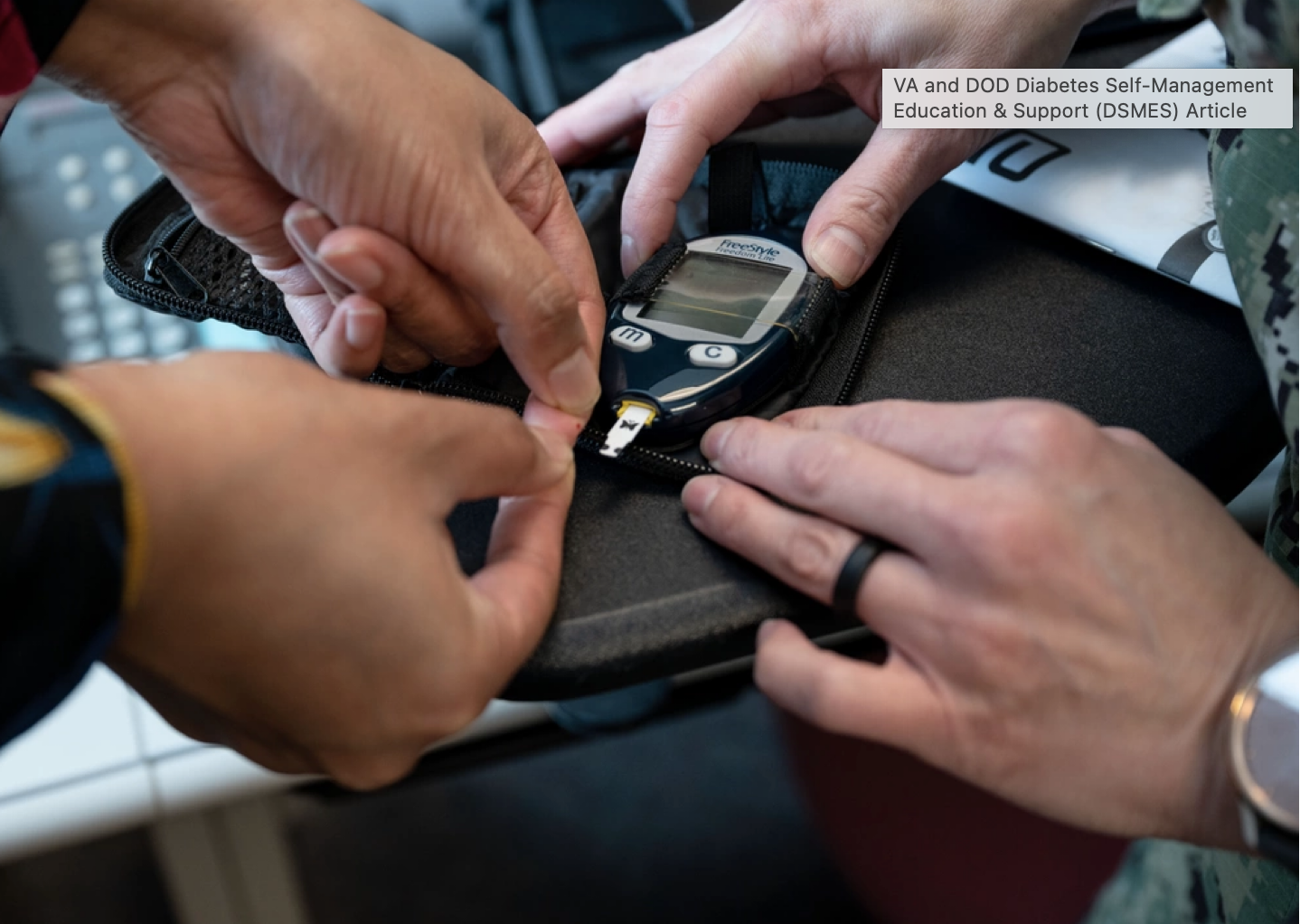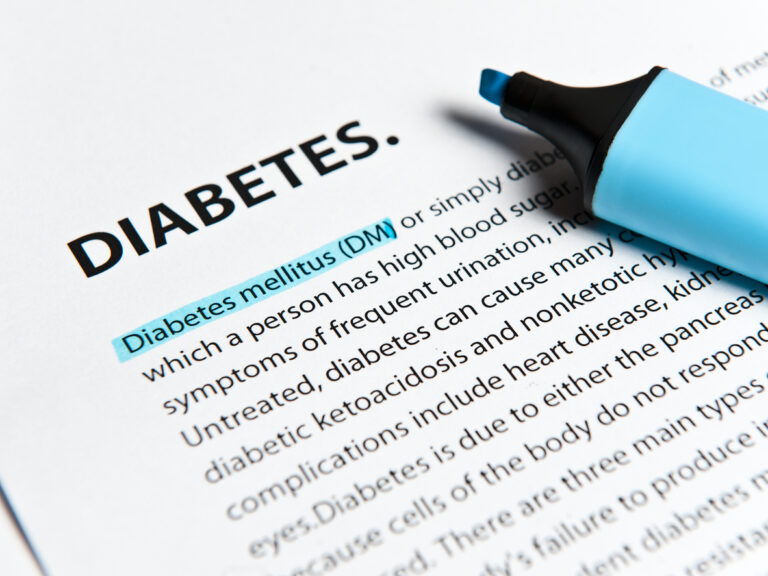Diabetes is one of the most common chronic diseases in the United States. More than 38.1 million adults ages 18 years or older had diabetes in 2021. That’s almost 15 out of every 100 people.
Diabetes among servicewomen and veterans
A 2023 study looked at how common overweight, obesity and diabetes were among active duty service members from 2018 to 2021. The findings revealed that the rates of prediabetes and Type 2 diabetes were higher among females than males, and higher among Hispanic servicemembers compared to non-Hispanic servicemembers. And, according to the U.S. Department of Veterans Affairs, Black veterans are less likely to have their diabetes controlled than their white counterparts. All of these trends mirror what we see in the civilian population.
“[Among veterans], we’re seeing the same trends among women who are non-veterans in that the rate of diabetes is higher than one would want to see,” said Evelyn L. Lewis, M.D., M.A., FAAFP, DABDA, the president and chair of the Veteran Health and Wellness Foundation
While all women and people assigned female at birth are more likely to develop Type 2 diabetes than their male counterparts, the chronic condition is a bit more common among women who have been in service than in their civilian counterparts.
According to a 2019 study, 11% of female veterans had diabetes compared to 9% of civilian women.
“We tend to think folks with the military [are disciplined] about health [but] they don’t necessarily do significantly better than some of their non-veteran counterparts,” Lewis explained. “When we see those within the veteran population who have Type 2 diabetes, particularly as they have aged, their efforts to abide by the things that would be helpful in controlling their condition are probably on par with their non-veteran counterparts.”
How having diabetes may affect a military career
Having a diabetes diagnosis can keep you from being able to join the military. However, if you develop the disease during service, you may not be discharged. But you must complete a Medical Evaluation Board (MEB), which is an assessment that determines whether you meet medical standards to continue service. The assessment considers various factors, including input from a commanding officer and an endocrinologist, whether your diabetes is well-controlled, and whether you’re insulin-dependent. If you’re insulin-dependent, you may not be able to deploy to certain environments where you can not store insulin properly.
Diabetes prevention and treatment in the military
While the physical requirements for active duty service members are rigorous, the benefits of exercise alone may not be enough to prevent diabetes. The military also needs to provide healthier food options for active duty members on base and deployment to help lower the rates of Type 2 diabetes.
For example, according to the same 2023 study previously mentioned, Navy service members had the highest increase in Type 2 diabetes between 2018 and 2021 due to limited food choices on ships and submarines.
In another study, active duty members revealed that a lack of healthy food alternatives and close proximity to fast-food restaurants on base influenced what foods they ate.
For those living with diabetes or prediabetes, Tricare offers a diabetes self-management training (DSMT) that educates beneficiaries on treatment and prevention of the disease.
The VA also offers medical services for diabetes prevention and management, including:
- Primary care
- Pharmacy services
- Endocrinology
- Nutrition counseling
- Weight loss programs
- Eye care and prescription glasses
- Podiatry (foot care) services
- Prosthetics
In addition to these services, the VA offers a program called Whole Health, which focuses on all aspects of a veteran’s life that may impact or influence their ability to address any health issues — including diabetes — that they may have.
Despite the many resources the VA offers for diabetes prevention and treatment, many veterans are not taking advantage of the VA’s resources.
The National Institutes of Health (NIH) reported that in 2021, over 9.2 million veterans were enrolled in the Veterans Health Administration (VHA). Yet, only about 6.8 million received care through the VA.
“There are trust issues [as] some veterans who know that they can go to the VA have started there, received care, but things didn’t go as they thought they should have, so they don’t trust the VA,” Lewis explained.
How servicewomen and female veterans can help prevent and manage diabetes
Whether you need medicine to treat or prevent diabetes or not, eating a healthy diet and getting enough exercise are key to managing your glucose levels for service members as well as civilians.
Your medical provider can provide personalized care recommendations for diabetes management, which may include a combination of the following methods:
- Monitoring blood sugar levels
- Taking medication if required
- Eating a healthy diet
- Getting enough exercise
The appearance of U.S. Department of Defense (DoD) visual information does not imply or constitute DoD endorsement.
This educational resource was created with support from AstraZeneca.















